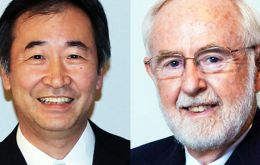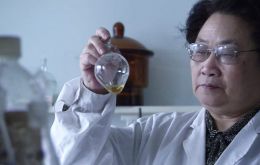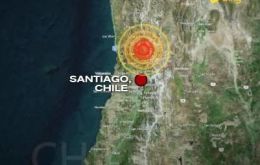MercoPress. South Atlantic News Agency
Health & Science
-
Tuesday, October 27th 2015 - 09:39 UTC
Processed meats can cause colorectal cancer in humans, says WHO

Eating processed meats like hot dogs, sausages and bacon can cause colorectal cancer in humans, and red meat is also a likely cause of the disease, World Health Organization (WHO) experts said.
-
Monday, October 19th 2015 - 21:46 UTC
Polar operators keen on conducting citizen science projects

Field staff from the International Association of Antarctic Tour Operations (IAATO) and the Association of Arctic Expedition Cruise Operators (AECO) got together in Toronto last month in the first Polar field staff conference ever held. Seventy-five people attended over the three days representing 24 IAATO/AECO members, three governments, three universities and the World Wildlife Fund.
-
Wednesday, October 14th 2015 - 21:08 UTC
Billions of juvenile polar cod under the Arctic ice, confirmed by German marine biologists

Using a new net, marine biologists from Germany's Alfred Wegener Institute have, for the first time, been able to catch polar cod directly beneath the Arctic sea ice with a trawl, allowing them to determine their large-scale distribution and origin. This information is of fundamental importance, as polar cod are a major source of food for seals, whales and seabirds in the Arctic.
-
Friday, October 9th 2015 - 08:04 UTC
Scientists flock to Falklands for vital South Georgia future research strategy

Fifteen scientists from institutes around the world gathered in the Falkland Islands this week to assess future scientific requirements for South Georgia. Project manager Dr Vicky Peck from the British Antarctic Survey based in Cambridge explained that the South Georgia Future Science project wanted to identify what the scientific needs of the island were and how they could best be facilitated.
-
Wednesday, October 7th 2015 - 14:27 UTC
Neutrinos oscillation discovery gives a Japanese and a Canadian the Physics Nobel prize

A Japanese and a Canadian scientist won the 2015 Nobel Prize for Physics on Tuesday for discovering that elusive subatomic particles called neutrinos have mass, opening a new window onto the fundamental nature of the universe.
-
Tuesday, October 6th 2015 - 09:04 UTC
Nobel in medicine for creating natural drugs to combat parasites; China's first prize

Nobel prize in medicine went Monday to three scientists hailed as “heroes in the truest sense of the word” for saving millions of lives with the creation of the world's leading malaria-fighting drug and another that has nearly wiped out two devastating tropical diseases.
-
Thursday, October 1st 2015 - 08:19 UTC
Argentina launches the three-ton ARSAT-2 telecommunications satellite

Argentina on Wednesday launched the ARSAT-2 spacecraft from a site in French Guyana, with the goal of providing telecommunication services across much of the Western hemisphere. ARSAT (Argentine Satellite Solutions), a state-owned company created in 2006, monitored the launch and operation of ARSAT-2 from the Benavídez Ground Station in northern Buenos Aires province.
-
Thursday, September 24th 2015 - 07:41 UTC
Brazil and UK joint research of critical elements in the deep northeast Atlantic

Scientists from the U.K. and Brazil will work together to study the formation of ocean minerals essential for new technology, particularly environmental technology such as photovoltaic cells.
-
Friday, September 18th 2015 - 14:27 UTC
Falklands' Fortuna Ltd. sponsors research on southern blue whiting

Falkland Islands fishing company Fortuna Ltd has become a sponsor and research partner in a PhD student ship on southern blue whiting. The Falkland Islands Government fisheries Department (FIFD) and the South Atlantic Environmental Research Institute (SAERI) are also collaborators in this research project.
-
Thursday, September 17th 2015 - 07:56 UTC
Major offshore earthquake hits Chile; felt in Argentina, Peru and Brazil

A major earthquake just offshore rattled Chileans, killing at least five people and shaking the earth so strongly the tremor was felt in Argentina, Peru, Bolivia, Paraguay and even Brazil. Authorities worked into the early hours on Thursday assessing damage in several coastal towns that saw flooding from small tsunami waves set off by the quake.